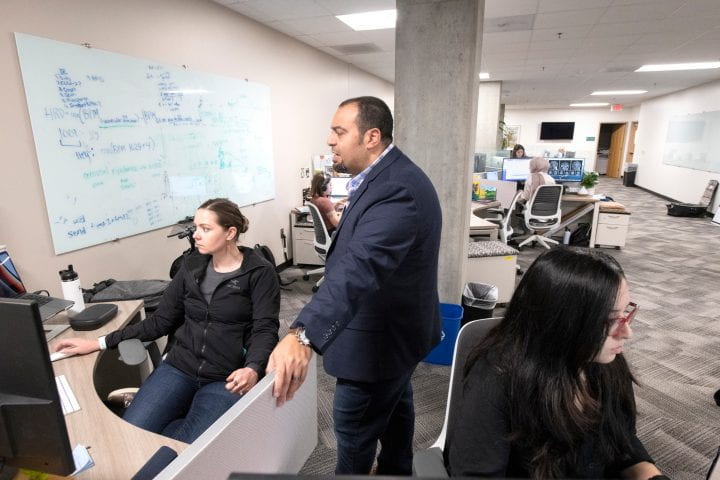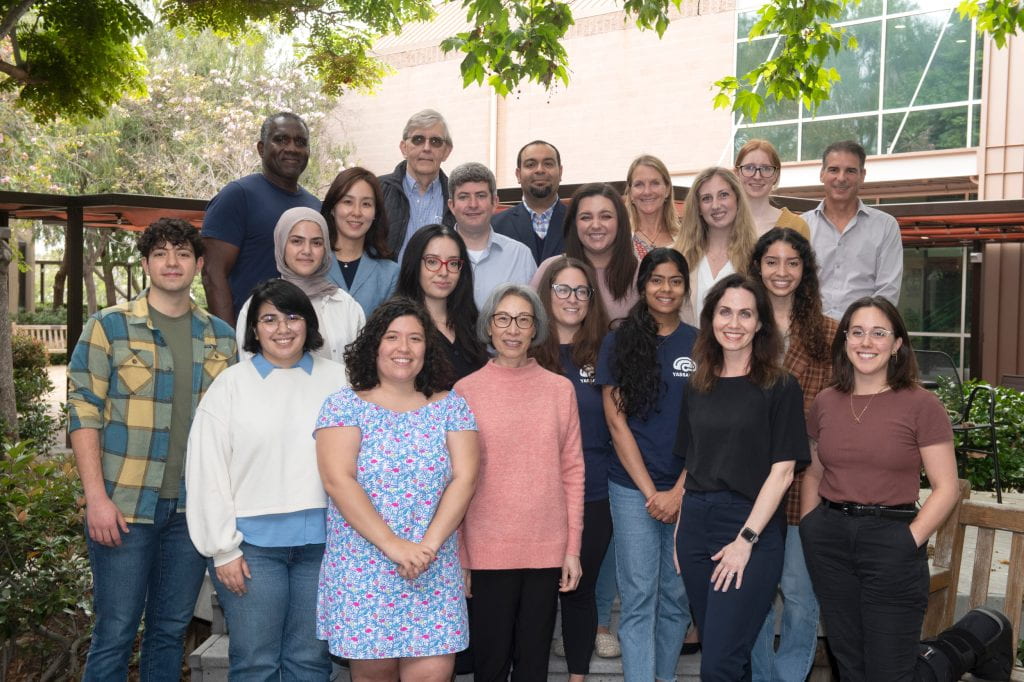Addressing disparities in Alzheimer's disease research
UCI project focused on Black and Hispanic adults to serve as beacon of inclusivity

Age-related cognitive decline and the escalating prevalence of Alzheimer’s disease are pressing social challenges as the population of those 65 and older continues to expand. Age is the primary risk factor, but research has shown that social and structural determinants of health play significant roles in the higher incidence of Alzheimer’s among marginalized communities.
The Biomarker Exploration in Aging, Cognition and Neurodegeneration collaboratory, led by Michael Yassa, director of the UCI Center for the Neurobiology of Learning and Memory, has been conducting leading research into cognitive decline causes and cures since 2017. Established through a grant from the National Institute on Aging, BEACoN recently received a five-year, $13 million renewal focused on Black and Hispanic older adults in Southern California.
“Engagement with marginalized communities is critical to understanding their unique experiences,” Yassa said. “Currently, the representation of these groups in research studies is modest, limiting our knowledge of the biology of how the challenges of economic disparity, social inequality and racism-related stressors impact the brain over a person’s lifetime.”

This research effort will involve longitudinal assessments of 200 individuals over the age of 60. Advanced brain imaging techniques will be used to evaluate markers of cerebrovascular injury and dysfunction. Modifiable risk factors such as sleep, physical activity, blood pressure and obesity, as well as such social and structural determinants of health as economic hardship, discrimination, and social stress and support, will also be gauged to determine their association with baseline and longitudinal changes in cerebrovascular profiles.
“Our goal is to address the disparities in Alzheimer’s disease research by engaging directly with Black and Hispanic communities in an authentic way. By actively involving them in the research design process, we can gain deeper insights into their experiences, challenges and perspectives on the disease. This type of engagement facilitates the development of culturally competent approaches and interventions that can help bridge gaps in healthcare access, treatment and support,” Yassa said.
BEACoN employs an interdisciplinary team science method that includes experts from around the world in disciplines ranging from neurobiology, psychiatry and neurology to physics, informatics and metabolomics, as well as pathology, statistics and computer science.
A variety of cutting-edge techniques and technologies – among them multimodal neuroimaging, multiomics molecular profiling, genetics, salivary bioscience, digital cognitive testing and computational modeling – will be utilized to reveal groundbreaking discoveries.
“Researchers have a scientific, moral and ethical obligation to ensure that their work benefits everyone, regardless of their socioeconomic background or ethnicity. It is our collective responsibility to conduct the best science – the right science – and ensure that key groups are not excluded from research,” Yassa said. “By incorporating diverse perspectives and understanding the impact of social factors on brain health, we can work toward a future where the burden of Alzheimer’s disease is alleviated for all.”
If you want to learn more about supporting this or other activities at UCI, please visit the Brilliant Future website at https://brilliantfuture.uci.edu. Publicly launched on Oct. 4, 2019, the Brilliant Future campaign aims to raise awareness and support for UCI. By engaging 75,000 alumni and garnering $2 billion in philanthropic investment, UCI seeks to reach new heights of excellence in student success, health and wellness, research and more. The Center for the Neurobiology of Learning and Memory plays a vital role in the success of the campaign. Learn more by visiting https://brilliantfuture.uci.edu/center-for-the-neurobiology-of-learning-and-memory-2.